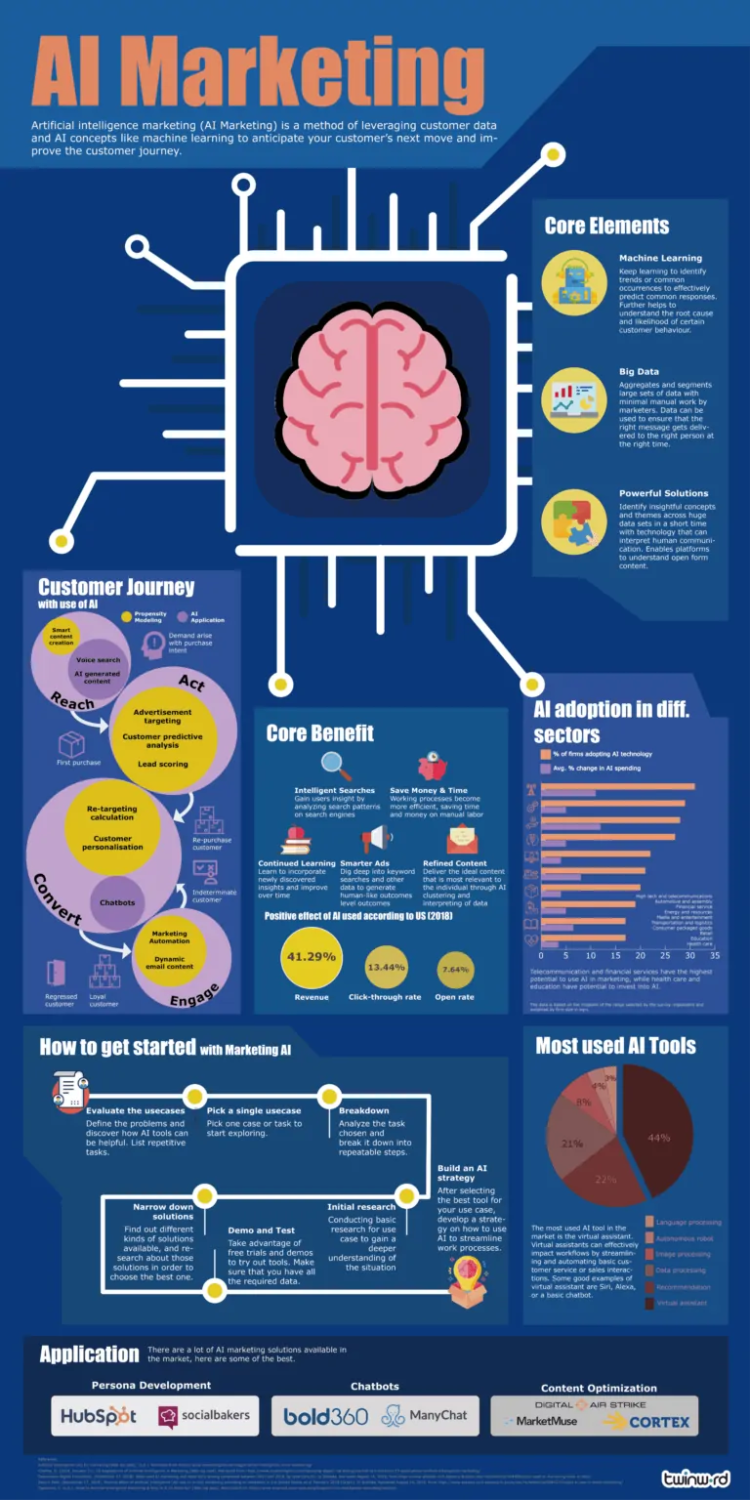Redefining Go-To-Market (GTM) Strategy in the Age of AI

Research shows 23% of organizations are using AI for marketing and sales. Gartner predicts 30% of outgoing marketing messages from large organizations will be generated by AI by 2025. With the advent of Artificial Intelligence (AI), brands are facing both challenges and opportunities in redefining their Go-To-Market (GTM) strategies. AI is not just a technological innovation; it's a game-changer that has the potential to revolutionize how brands approach customer engagement, sales, and overall business growth. In this article, we'll explore how AI is reshaping GTM strategies for brands and the key insights gleaned from industry experts.
1. Hyper-Personalization and Targeting
One of the most significant impacts of AI on GTM strategy is the ability to deliver hyper-personalized experiences to customers. 46% of organizations that already use AI said they use generative AI most for marketing and communications. Traditional marketing approaches often relied on segmentation and broad messaging, but AI enables brands to analyze vast amounts of customer data to tailor their messaging and offerings to individual preferences and behaviors.
AI-powered tools can analyze customer data in real-time, allowing brands to identify trends, predict future behaviors, and deliver targeted messages that resonate with specific audience segments. By leveraging AI-driven personalization, brands can create more meaningful connections with their customers, ultimately driving higher engagement and conversion rates.
2. Enhanced Sales and Customer Insights
AI is also transforming how brands approach sales and customer insights. By leveraging AI-powered analytics and predictive modeling, brands can gain deeper insights into customer behavior, preferences, and purchasing patterns. This enables sales teams to prioritize leads more effectively, tailor their sales pitches to individual needs, and identify upselling and cross-selling opportunities.
Moreover, AI can automate repetitive tasks such as data entry and lead qualification, freeing up sales teams to focus on more strategic initiatives and relationship-building activities. As a result, brands can streamline their sales processes, improve productivity, and drive greater efficiency across the organization.

3. Predictive Marketing and Demand Forecasting
Another key insight from the article is the role of AI in predictive marketing and demand forecasting. By analyzing historical data and external factors such as market trends and competitor activities, AI-powered algorithms can predict future demand for products and services with a high degree of accuracy.
This enables brands to anticipate customer needs, optimize inventory levels, and allocate resources more effectively. By proactively adjusting their marketing strategies based on predictive insights, brands can stay ahead of the curve and capitalize on emerging opportunities in the market.
4. Continuous Optimization and Adaptation
Finally, AI is enabling brands to adopt a more agile and iterative approach to GTM strategy. Traditional marketing plans were often static and inflexible, but AI allows brands to continuously monitor and optimize their campaigns in real-time based on performance data and customer feedback.
AI-powered tools can automatically test different variations of marketing messages, channels, and tactics to identify the most effective strategies for driving engagement and conversion. This iterative approach enables brands to adapt quickly to changing market dynamics and customer preferences, maximizing their ROI and demonstrate thought leadership effectively.

In conclusion, AI is revolutionizing GTM strategy for brands in unprecedented ways. From hyper-personalization and enhanced sales insights to predictive marketing and continuous optimization, AI-powered tools are empowering brands to engage with customers more effectively, drive sales growth, and stay ahead of the curve in today's competitive marketplace. As AI technology continues to evolve, brands that embrace AI-driven GTM strategies will be best positioned to thrive in the digital age. However, the role of the right partner who understands the nuances of using AI in the right manner for the brands can be the real game changer in the future.
- What do a well-balanced diet and a well-balanced content strategy have in common?
- Stories are the future of digital marketing
- Organic Content Marketing – A powerful tool to reckon with
- Content is King, but distribution rules the land. Are you invested in it?
- Three Content Marketing Predictions For 2018
- 3 Ways Chatbots Are Revolutionizing Customer Experience In Content Marketing
- 3 ways to balance promotional content with useful information to win the content game
- Organic Content Marketing – A powerful tool to reckon with
- What do a well-balanced diet and a well-balanced content strategy have in common?
- Mirror on the wall who is the real thought leader among all
- Do you have your CEO’s vote for your thought leadership campaign yet
- Pretty pictures and messages not enought to creat a brand anymore
- 5 reasons why you need Thought Leadership
- 3 reasons why organisations should drive reputation management through thought leadership
- Create Result-oriented Content Now
- Tips to Keep the Content Strategy for the Technology Industry Audience
- 5 ways Corporate Blogging helps you stay ahead!